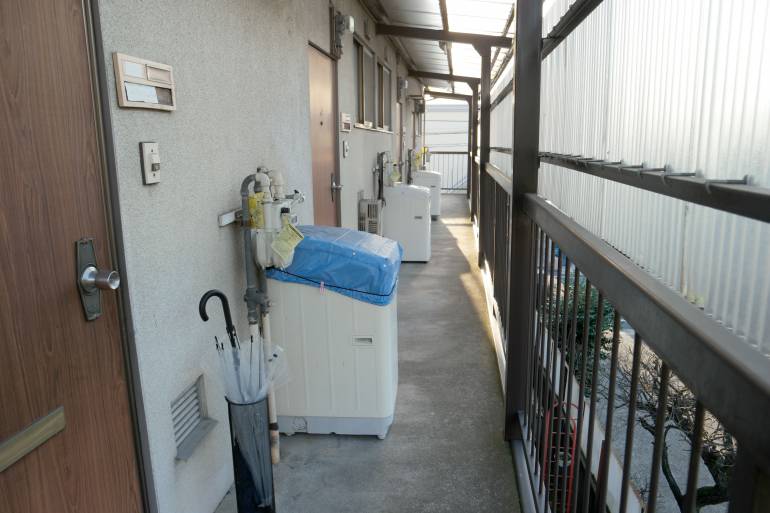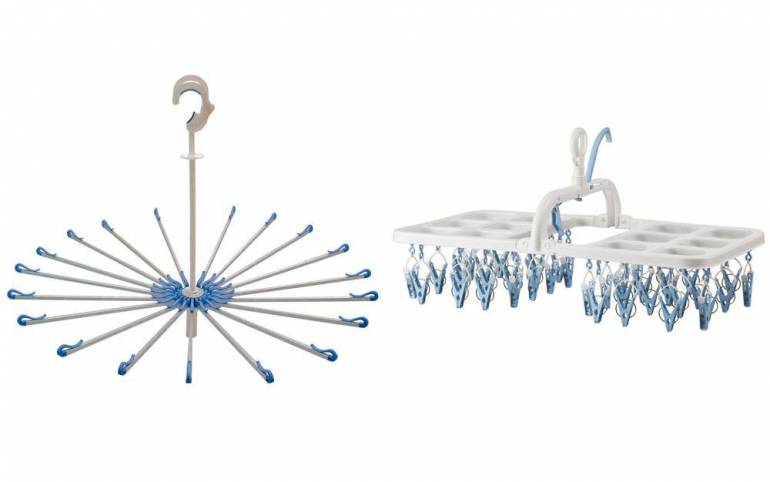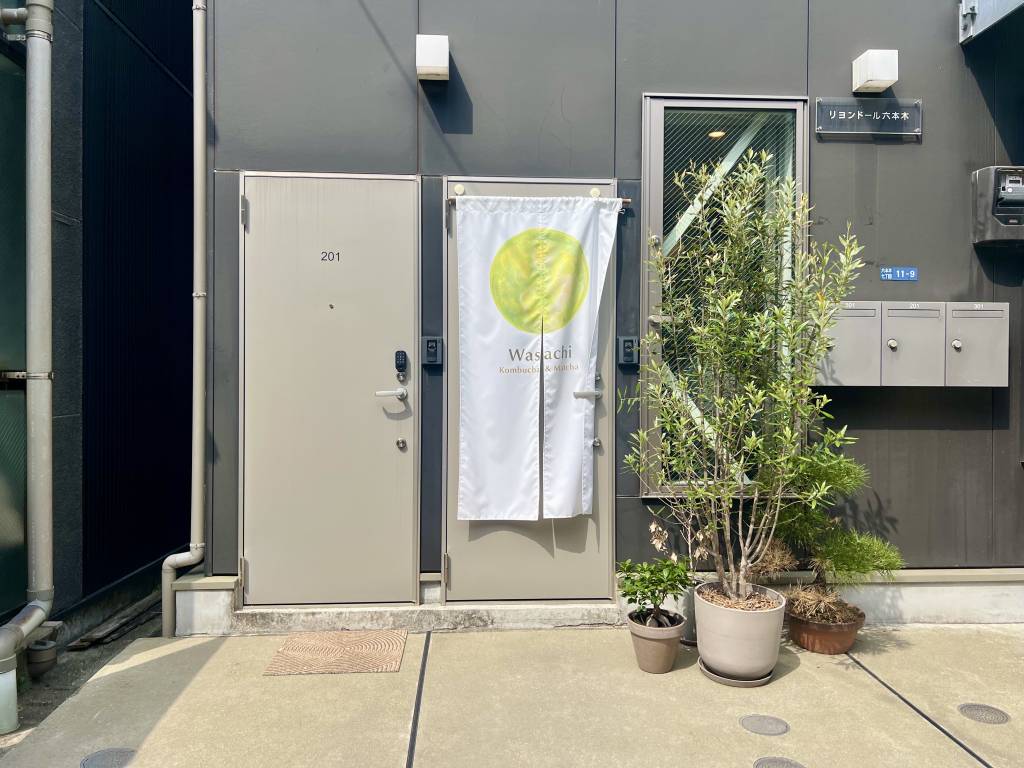Japan is known for being a land of cutting-edge technology. But when it comes to laundry, be prepared to travel back in time a few decades.
It can be a bit of a challenge to get laundry done when most of the country doesn’t own a dryer and resorts to hanging their clothes outside to dry all day. (Unless you’re one of the lucky few that can afford a washer-dryer combo.) Take a look at our guide below and learn to tackle the mysterious buttons, cold water wash, outdoor taps, and the dreaded typhoon season.

How do Japanese washing machines work?
Did you know that Japan mainly uses cold water to wash their clothes? That can be a shock to many visitors and vice versa — I’ve known a few Japanese who have shrunk their cashmere sweaters in Western-style, hot water washing machines.
Most homes in Japan also have the machine attached to a water line via a tap and hose. In an old-style apartment, this may need to be turned on every time before every use. These connectors can be found both inside and outside of apartments and occasionally you will see apartment buildings with rows of machines outside the door greeting the people who live there. Though these days, you’ll find more inside than out.

Button translations: What does it all mean?
Once the water is set up it is time to move on to the buttons. If you are not well versed in kanji before you move to Japan (or you are in a vacation rental), you might have some difficulties figuring out how to use your machine. The kanji here can be daunting but don’t worry, it’s easier than you think.
If you want the most basic automated wash cycle, to start with, turn on the machine using the button with 運転 入/ 切 on it. This is the power button.

Next, the larger set of buttons, as seen above, allows you to decide what kind of course (コース) you want to set your laundry on depending on what you need washed. For an automatic wash, just hit the power button and press start (スタート). This is the easiest way to wash clothes and the washer will determine how much water is required. Just remember to close the lid of the machine.

Now that the easy part is out of the way you must learn all the kanji shown here… just kidding. These buttons shown above tell you what stage your laundry is in during the wash cycle. The lights above this specific machine will light up to indicate what it is doing at any given time. If you miss one of these stages or want to do just one of these steps, for one reason or another, you would just push that and then start (スタート). For reference here is what each of those stages mean:
- 水量 water volume
- 洗濯 / 洗い / あらい wash
- すすぎ rinse
- 脱水 spin dry
- 室内干し indoor drying / hanging clothes inside

Where to dry your clothes
Here comes the fun part, hanging up your clothes to dry outside. Walking through the streets of Tokyo, you will see apartment buildings covered with clothes and futons draped over balconies.
This is extremely normal in Tokyo and people will often question the need to use a dryer because it can be considered a waste of electricity. To accommodate this, many stores (or Craigslist!) offer a variety of drying racks based on space and what is being dried. From spinning circular racks to ones with a hundred clips, you be able to find anything you need to fit your drying space and needs.

Using the laundromat
If you are completely opposed to letting your unmentionables blow dry in the wind, or don’t feel like lugging a washing machine up to your 7th-floor apartment, then Japan has a pretty good supply of self-service laundry shops available.
The first thing you need to know about coin laundries in Japan is that, well, you’ll need coins. The second is that they are sometimes connected to public bathhouses (sento) and have large dryers as well as washing machines. A full wash load shouldn’t set you back more than a few hundred yen.
You’ll probably end up making a few trips to the laundromat during typhoon or winter season. Drying your clothes inside can cause mold, plus you might need that party dress for a last-minute date. For ¥100, you can run your clothes in a dryer for 10 or 20 minutes. So, it can get pretty pricey if you are doing laundry multiple times a week. It’s much cheaper to just let nature do all the work for you.

Japan can present many cultural challenges, but laundry isn’t one that you should stress yourself out over. A couple tips to remember though are to bring your clothes in as soon as it gets dark and remember to use fabric softener. This reduces that wonderful outside nature smell that can come from hanging clothes. One last thing, be sure to check the weather beforehand.
This article was originally published in 2016 by Devan Baird. Last update: November 2022.































